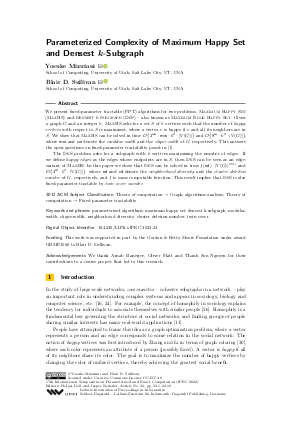LIPIcs.IPEC.2022.23.pdf
- Filesize: 0.87 MB
- 18 pages

 Creative Commons Attribution 4.0 International license
Creative Commons Attribution 4.0 International license





























Feedback for Dagstuhl Publishing